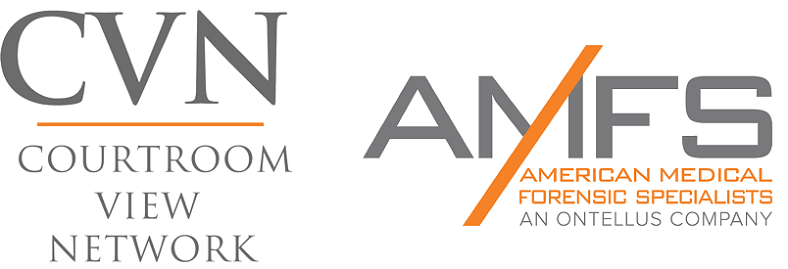As part of its partnership with American Medical Forensic Specialists, Dr. Gary Gansar analyzes testimony from Dr. Harris Fisk, whose opinion played a key role in a $52.89 million total verdict at trial over injuries two brothers suffered in a head-on crash with a semi-truck. The full analysis can be found at the AMFS site. You can watch extended video, along with the analysis, on CVN Essentials.
The Trial: Lennig v. CRST, et al., a California damages-only trial over injuries two brothers suffered in a head-on collision with a semi-truck.
The Expert: Dr. Harris Fisk, a neurologist, testifying for the plaintiff on the traumatic brain injury, post-traumatic stress disorder, and other complications one of the brothers suffered as a result of the crash.
The Verdict: $52.89 million total.
The testimony given by Dr. Harris Fisk during this California trial on damages was crucial to the $53 million verdict delivered to two brothers who were injured in a big rig trucking accident. Fisk calmly takes the jury through discussions of traumatic brain injury, post-traumatic stress disorder, sleep disorder, and stress-anxiety-depression disorder. These pathologies from different medical fields are brought together by the presentation from this distinctive, experienced neurologist testifying about cutting-edge issues.
Matthew and Michael Lennig were injured in a head-on collision with a semi-truck helmed by a CRST driver. The trucking firm admitted the driver’s negligence but disputed the severity of the brothers’ claimed brain, arm, and back injuries.
Fisk, a Los Angeles-based neurologist, is called to detail the lasting impact of the crash on Matthew Lennig. The doctor speaks of Lennig’s brain concussion as part of the spectrum of traumatic brain injury causing a variety of symptoms that the victim is now forced to deal with: thinking and memory problems, buzzing in the ears or loss of hearing, behavioral changes, headaches, and dizziness. He addresses the occipital neuralgia—headaches generated by the actual damage to nerves coming from the base of the skull. This post-traumatic headache syndrome he relates to the actual crushing of the occipital nerves between bones.
Convincingly, the neurologist details what the trauma has actually physically done to the plaintiff. Post- traumatic vertiginous disequilibrium has taken his balance, benign positional paraxysmal vertigo keeps him dizzy, he is plagued by chronic neck pain from cervical strain, numbness and tingling in the arm, carpal tunnel syndrome affecting his wrist, damage to the chest wall and lower back structures.
...
For the full AMFS commentary visit
For more video of Fisk's testimony visit
His final statements here were crucial to sealing the jury’s sympathies. The brain has two years to heal with traumatic brain injury; but we are beyond that. We should know if treatment of post-traumatic stress disorder has been successful within 6 months; but we are beyond that. There is a small chance of complete resolution of a patient’s sleep disorders, stress anxiety, depression, and panic disorder with intense treatment if they exist as a singular pathology in a singular person, but the interaction of all of these pathologies in this one patient “will not be resolved for the remainder of his life.”
--
Gary Gansar, MD, is residency trained and Board Certified in General Surgery. He previously served as Chief of Surgery and Staff at Elmwood Medical Center and on the Medical Executive Committee at Mercy Hospital and Touro Infirmary in New Orleans, LA. Dr. Gansar also served as Clinical Instructor and Professor of Surgery at Tulane University. He received his MD and served as Chief Resident at Tulane University Medical School. Dr. Gansar joined AMFS as a consulting medical expert in 2011 and has served as Medical Director since Nov. 2015. In this capacity, Dr. Gansar provides consultation, review and guidance to attorney clients.





